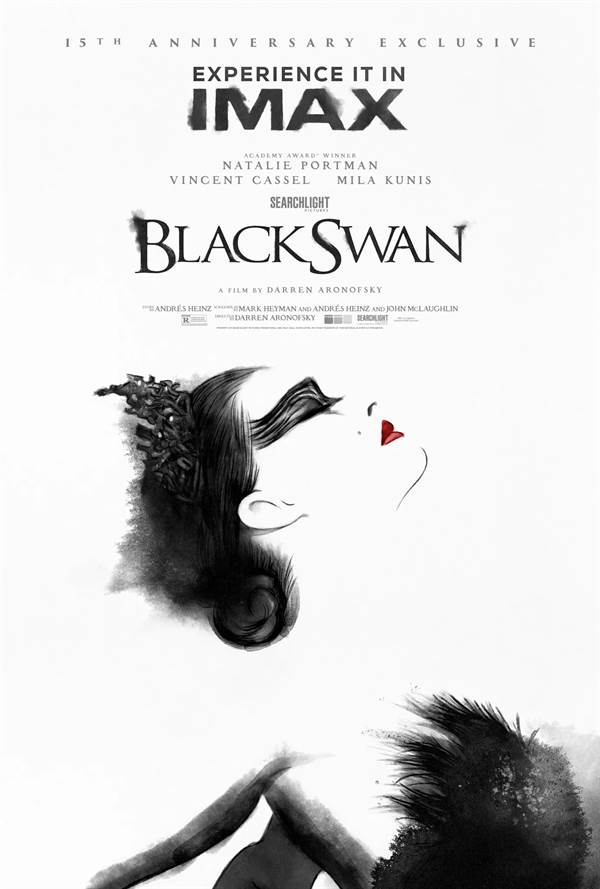
Darren Aronofsky's haunting psychological thriller Black Swan is returning to the big screen in a way fans have never seen before. In celebration of its 15th anniversary, the Oscar‑winning film is receiving a special IMAX re‑release, offering audiences an immersive experience of the ballet‑fueled descent into madness that captivated the world in 2010.
Black Swan will screen in more than 200 IMAX theaters across major cities on and , marking the first time the film has ever been presented in the large‑format cinematic experience. The re‑release will, no doubt, showcase the stylized, visceral storytelling that defined Aronofsky's chilling vision.
Searchlight Pictures has unveiled a brand‑new trailer and poster to accompany the IMAX event, teasing the heightened psychological intensity and surreal elegance that audiences can expect from this upgraded presentation. The studio also hinted at additional celebrations of the film's legacy to be revealed throughout the year, signaling an extended retrospective of one of the most iconic films of the 21st century.
The film originally premiered at the Venice Film Festival in 2010, and became an awards‑season juggernaut, playing at Telluride and Toronto before its theatrical release. The film was nominated for five Academy Awards, including Best Picture and Best Director for Aronofsky. Portman's harrowing portrayal of Nina Sayers, a dedicated but emotionally fragile ballerina unraveling under the pressure of her dual role as both White Swan and Black Swan in a New York production of Swan Lake, earned her the Oscar for Best Actress. Her performance was widely lauded for its physical and emotional demands and became one of the most talked‑about acting achievements of the decade.
In addition to Portman, the film starred Mila Kunis, who received critical acclaim for her enigmatic turn as Nina's rival and potential hallucination, Lily. The supporting cast also included Vincent Cassel as the manipulative ballet director Thomas Leroy, Barbara Hershey as Nina's controlling mother, and Winona Ryder in a memorable role as a fading prima ballerina.
The film was a commercial success, grossing nearly $107 million domestically and $329.3 million worldwide — an extraordinary feat for a psychological drama with art‑house roots. At the time, Black Swan proved that challenging, character‑driven films could still find broad appeal in the theatrical marketplace, long before the dominance of streaming platforms shifted the industry. It is said that the film paved the way for other prestige thrillers like Gone Girl, Mother!, and Hereditary, which similarly explored themes of identity, repression, and breakdown through a deeply subjective lens.
Kunis earned the Marcello Mastroianni Award for Best Young Actor or Actress at Venice, while Portman also took home Best Actress at the Golden Globes and Screen Actors Guild Awards. At the Film Independent Spirit Awards, Black Swan swept all four of its nominations: Best Feature, Best Director, Best Actress, and Best Cinematography for Matthew Libatique's haunting visual work.
To this day, Black Swan remains Searchlight Pictures' second highest‑grossing film of all time, just behind Slumdog Millionaire, the 2008 Best Picture winner which earned $378 million globally. However, its cultural significance lies not only in awards and box office success, but in how it embedded itself into the zeitgeist, becoming a cinematic shorthand for beauty twisted into darkness.
